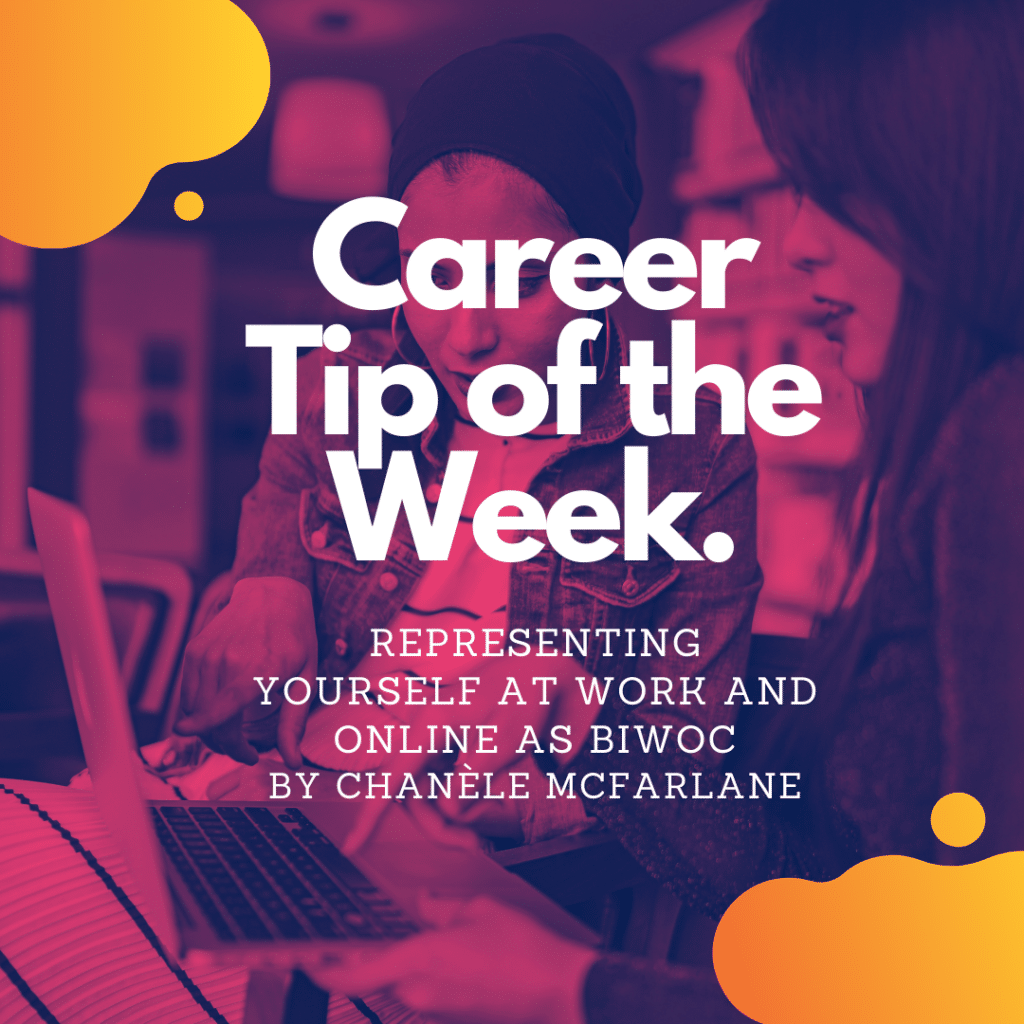By: Chanéle McFarlane
Wrapping our heads around the concept of personal branding is challenging enough on its own. So, when you’re trying to also make sense of how to integrate your various interests? It seems easier to quit before you even start.
If there’s one thing that’s for sure about BIWOC, we’re multidimensional. We can’t be defined by just one thing as we are each made up of a unique multitude of lived experiences, professional expertise and passions. Although we may have certain experiences that unite us, we are not a monolith. However, what I’ve often seen is that because there are so many dimensions to our identities – we often under-represent ourselves online and at work.
A large part of this is cultural. We’re often taught to be humble and not draw too much attention to ourselves, which can feel like a direct clash with the concept of personal branding. Additionally, it can be hard to see our cultural upbringing as an asset especially when we work in environments where we’re the “only” or one of very few.
There’s also another important issue at play here: safety. How safe do you feel putting yourself out there at work and online? When I first launched my blog, I was absolutely terrified. It was very much outside my comfort zone and different from what anyone else has done in my family. I hid it from my family members for months and I didn’t tell my employer or colleagues for over a year. I was terrified to hear their comments. Not to mention, any comments from strangers online. Fear aside though, as BIWOC, we also have to navigate code switching and the emotional tax of existing as a minority in workplaces – it’s a lot!
Now, what’s the problem with this? We’re missing out on opportunities. This could be work-related, volunteerism, thought leadership (public speaking and media appearances, to name a few) and the ability to truly connect with people or communities that have similar interests.
As a Talent Researcher, I spend my days combing through Linkedin profiles to find talent for open roles. Once I find people that seem to align with the roles I’m sourcing for, I’ll reach out to set up a phone conversation. More often than not, I learn so much more about the candidate than what they have on their profiles. What I’ve also observed is a very clear difference in how BIWOC describe their work and impact during interviews. Many BIWOC I’ve spoken to tend to say things such as “I don’t want to brag but…” or they minimize the value of their contributions on a project.
This also plays out while in the workplace, whether we’re an intern or a full-time employee. There could be an awesome project available to work on that we would be perfect for… but no one knows that we have that expertise.
Well, it’s about time that we step into our personal power. Playing small does not serve us or the world. So, what can we do to ensure we avoid underrepresenting ourselves?
Define your narrative
I very much believe in the power of a
portfolio career. It’s sometimes hard to see at first but there’s often a common thread that ties together the things we’re interested in. If you look at my profile, for example, I do a lot of things that could be confusing at first glance. I’m a Talent Researcher, a writer, an advisor, a public speaker and of course, Career Strategist in Residence here at AHF! However, the common thread that ties it all together is that all of these roles allow me to help people launch, pivot and accelerate their careers.
Take a moment to think about all of the things you’re passionate about – do you see something that connects them? I believe that uncovering our portfolio career is the key to building our confidence in promoting our multiple professional passions, interests and areas of expertise.
Take people along on your journey
It can feel daunting to think about how you’ll communicate (and create content on) the various aspects of your personal brand online. Instead, I recommend focusing on simply taking people along on your professional journey. This is a list of potential things you can share regularly:
- What are you currently reading?
- What’s a major lesson you’ve learned recently?
- What kind of projects are you working on? What types of things would you like to work on in the future?
- What kind of work are you most passionate about?
I liken this approach to building your career in public. You’re sharing things as they happen and allowing people to feel like they’re experiencing things alongside you. Not only does this allow you to build more meaningful relationships with people but it also makes you a lot more memorable.
Tell people what you do with confidence
If you make it a habit to regularly tell people what you do and what you’re working on, it will start to feel like second nature. When you’re introducing yourself in any professional setting, don’t feel afraid to share what you’re passionate about. You’d be surprised at what people remember and how a short introduction could lead to big opportunities in the future. Here is an example of the structure you can use for your next introduction:
- Your name
- Where you’re based (if applicable)
- What you do/your role(s)
- What you’re passionate about and/or something interesting you’re currently working on
And, of course, here’s an example of this structure in action:
Hi, I’m Chanele and I’m based in Toronto! I’m currently a Researcher on the Talent Engagement team, working on sourcing and employer branding. Outside of work, I write, speak and teach on all things career development. I’m very passionate about diversity recruiting and supporting underrepresented groups with their careers so I’m always looking for any opportunity to work on these kinds of projects.
This advice also applies to your online presence. By taking the time to fill out your online profiles, especially on Linkedin, you will attract passive opportunities. Add as much information as you can and focus on
showcasing your accomplishments so that it’s clear what you can do and more importantly, the impact of your work. This article on
The Muse and on
Monster’s blog are helpful resources.
Need some help with your Linkedin profile? I highly encourage you to check out your college or university’s career centre and keep an eye out for employers that run workshops on Linkedin profile. You could also work with a mentor or career coach, take an online course and, of course, even check out the resources on the
Linkedin talent blog! All of these are great options to help you best articulate your skills and competencies on your Linkedin profiles.
Reflect on what you’re genuinely passionate about
As BIPOC, we’re no stranger to working twice as hard. I’ve come to realize though that sometimes we can get so caught up in thinking we have to do everything that we don’t recognize what we genuinely enjoy. I believe it’s important to continually reflect on our work and our mission so that we can really narrow in on what brings us joy. Here are some questions I like to reflect on:
- How do I feel when I do this work? Does it light me up or deplete my energy?
- Does this work align with my personal and professional values?
- If my career success wasn’t a factor, what things would I do differently?
- What things would I do if I knew I would not fail?
At the end of the day, we will feel more confident in fully representing who we are when we find joy in what we’re doing. We shouldn’t be trying to put on a persona of someone we’re not because we think that’s going to land us the job or the internship. When we lean into what lights us up, everything has a way of falling into place naturally.
We bring to the table a wide range of skills, talents, knowledge and experience that has value attached to it. You don’t have to be defined by a solitary thing. Instead, lean into your many dimensions, share them unapologetically with the world and attract the opportunities that you deserve.



